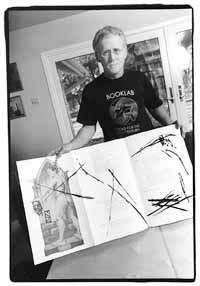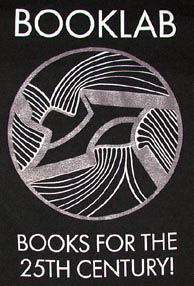Homeschooling – Unterricht zu Hause
André pointed me to a link on Upstairs at Dry Creek to this article on World on the Web about homeschooling in Germany.
I know homeschooling is not legal in Germany, but in some states it is tolerated. However, I wasn’t aware that the police actually forces childred to go to school in such a shockingly cruel way.
I’ve been thinking about the article and the issue of homeschooling in the past hour or so. Homeschooling is getting more and more popular in the US, it seems, but very few students are home-schooled in Germany because it is illegal. But why is homeschooling illegal in Germany?
The German constitution says: (Scroll down to Chapter 1, Articles 6 and 7)
Article 6 [Marriage and family, illegitimate children]
(1) Marriage and family are under the special protection of the state.
(2) Care and upbringing of children are the natural right of the parents and primarily their duty. The state supervises the exercise of the same.
(3) Against the will of the persons entitled to their upbringing, children may only be separated from the family, pursuant to a statute, where those so entitled failed or where, for other reasons, the children are endangered to become seriously neglected.
[…]Article 7 [Education]
(1) The entire schooling system stands under the supervision of the state.
[…]
This means that parents have a right to raise their children, but the state can take the children from the parents if they fail to care for them. Keeping them away from school is a reason for taking the children from the parents. There is an institution, the Jugendamt, that is dealing with such cases, and if they choose, they can send the police to take the children from the parents if they see no other possibility to take the children away.
Further, the father of the children critizises sex education, acceptance of homosexuality, and “occultism” (in-class meditation sessions) in school. I’d like to comment on these:
- Sex education: I was able to find out is that sex education is obligatory in Bavaria, and the Federal Constitutional Court decided that sex education is obligatory in 1977. (in German)
- Acceptance of homosexuality: This is settled in the constitution as well (Scroll down to Chapter 1, Articles 3 and 4):
Article 3 [Equality]
(1) All humans are equal before the law.
(2) Men and women are equal. The state supports the effective realization of equality of women and men and works towards abolishing present disadvantages.
(3) No one may be disadvantaged or favored because of his sex, his parentage, his race, his language, his homeland and origin, his faith, or his religious or political opinions. No one may be disadvantaged because of his handicap.Article 4 [Freedom of faith, of conscience, and of creed]
(1) Freedom of creed, of conscience, and freedom to profess a religious or non-religious faith are inviolable.Read: No one may be disadvanteged or favored because of his sexual orientation.
- In-class meditation sessions: See
Article 7 [Education]
[…]
(2) The persons entitled to the upbringing of a child have the right to decide whether the child shall attend religion classes.
(3) Religion classes form part of the ordinary curriculum in state schools, except for secular schools. Without prejudice to the state’s right of supervision, religious instruction is given in accordance with the tenets of the religious communities. No teacher may be obliged against his will to give religious instructionIt seems to me the parents can decide whether their children attend these “meditations” or not. By the way, I have no idea what this “”occultism’ (in-class meditation sessions)” is. I certainly didn’t have meditation sessions at school.
It seems that the main reasons the father gives for not sending his children to school are either settled in the German constitution or not reasons at all because he can decide whether his children participate in certain activities or not.
World’s Largest Search Engine
Via BookNotes:
On the 26th Google put out this press release: Google Launches World’s Largest Search Engine. They claim to be able to search over 1 billion urls, 560 million full-text indexed and 500 million partially indexed pages.
Google is my favorite search engine. Recommended!
 World Expositions
World Expositions
Yesterday, I asked whether anybody else besides Sheila and us went to any world fair. I got some answers: Like Sheila, Jeff went to the 1986 fair in Vancouver, Canada, and Craig went to th 1964 fair in New York City, USA.
Wasn’t the New York fair the one with the ufo-like buildings that were used as ufos again in Men in Black? 
Cool, John and Dave also went to the 1964 world’s fair in New York. It seems Dave practically lived there… ![]()
I guess I would visit the Expo in Hanover a lot if I lived in Hanover, since they have evening tickets for only DM 10 (US$ 5) at the moment. Cheaper than going to the movies! I used to live there (for three years) before I moved to Bonn, and my sister is now living there. She’s been to the Expo only once so far, but she’s busy with exams right now.








